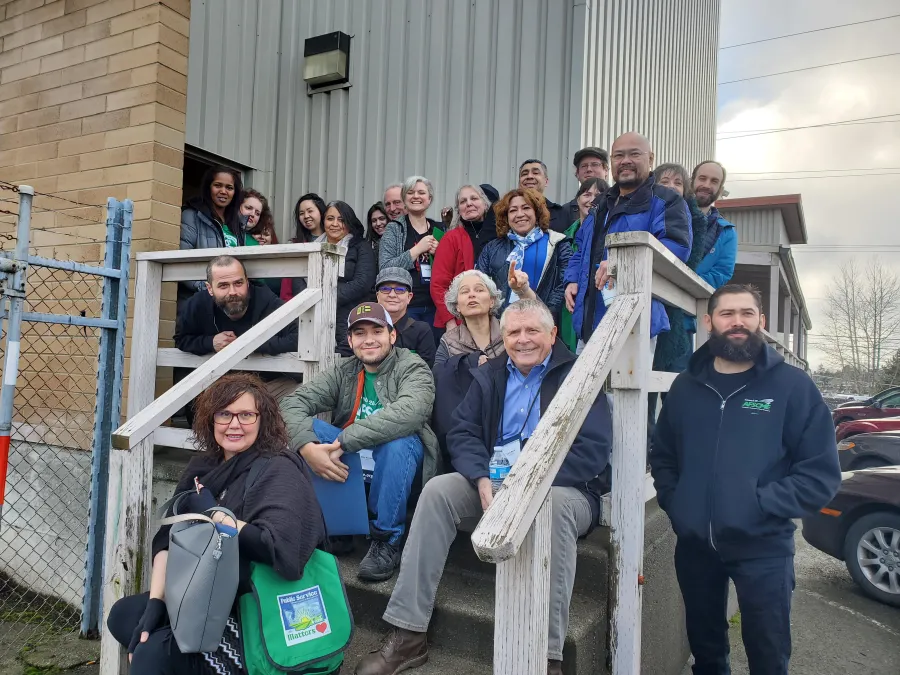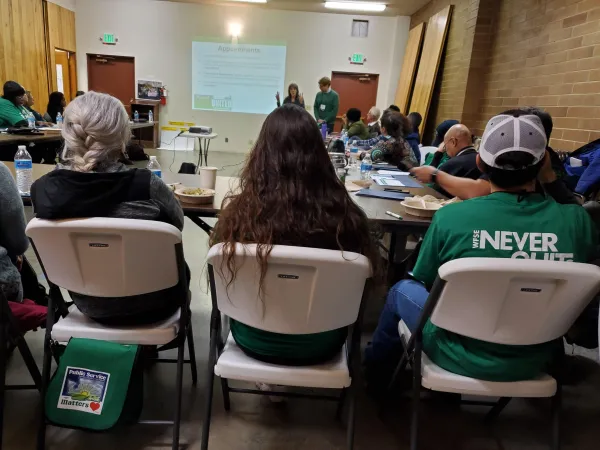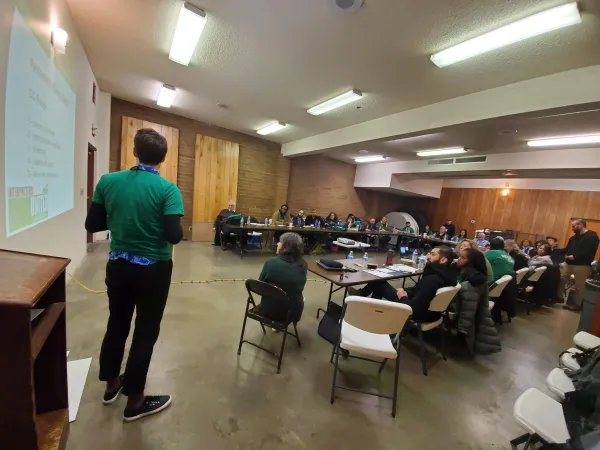Interpreters Blitz for Respect

Members of Interpreters United gathered earlier this February for a three-day organizing blitz to connect with unrepresented language access providers. The blitz was just one event in a statewide effort to increase bargaining power and improve conditions for interpreters who help thousands of Washingtonians overcome language barriers.

Click here to email your legislators.
Quan Tran has been an interpreter for the past 30 years. His career began in Oregon, where he worked as an interpreter and as an organizer for social workers.
“I saw that the only way to improve the lives of the interpreters was to organize,” he said. For years, he spoke with coworkers about forming a union, but it was difficult to convince them of its worth. Many had negative cultural connotations about unions.
Then, Tran heard WFSE was working to organize interpreters in Washington State. That changed everything.
“Now we are a very strong movement. Oregon has followed our footsteps. Last weekend was the very first time they had a blitz,” he said.
“We make a very good, strong, cohesive group. [Our union] only gets stronger.”

Tran was among the many members present who participated in WFSE’s 2010 campaign to organize social services and Medicaid interpreters, which culminated in the formation of the first union of freelance interpreters in the United States.
“It changed our lives, and we have changed an industry,” said another Interpreters United member.
Since winning their first contract in 2011, WFSE-represented interpreters have doubled their pay and won guaranteed one-hour minimums for appointments, 75 percent reimbursements for cancellations and no shows, and an online scheduling system.
In Washington State, public agency interpreters work as independent contractors. Interpreters make sure we are able to access medical services, social welfare services, court services, education services and more, regardless of proficiency in English—a right guaranteed by law. They often depend on third-party language companies to book their appointments.
Interpreters at Labor and Industries (LNI) report language companies taking as much as 30% or more of their pay simply to schedule work. Though many language companies are helpful to interpreters, corruption in a select few has also led to favoritism, unfair blacklisting, and sweetheart deals with certain clinics.
LNI interpreters also face a uniquely complex billing system, no reimbursements for client cancellations and no-shows, and the dubious practice of “clawbacks”. If an interpreter works for a client whose LNI claim is later denied, the agency asks for their money back, immediately and in one payment.
Ruth Medina-Velderrain has been a member of WFSE since 2011.
“I see how far we have come and how much we have done [by organizing with WFSE]” she said. “If we keep pushing, we can create a legacy for others to come—and for ourselves. I want to enhance the worth and respect of interpreters.”
If you’re curious about joining the powerful collective that is WFSE, call the Member Connection Center at 833-MCC-WFSE (1-833-622-9373).
To make sure your elected representatives at the Legislature know that interpreters should be able to bargain for healthcare just like other public employees, send a letter today. Together, we can stop abusive practices, win raises, and lift each other up.
